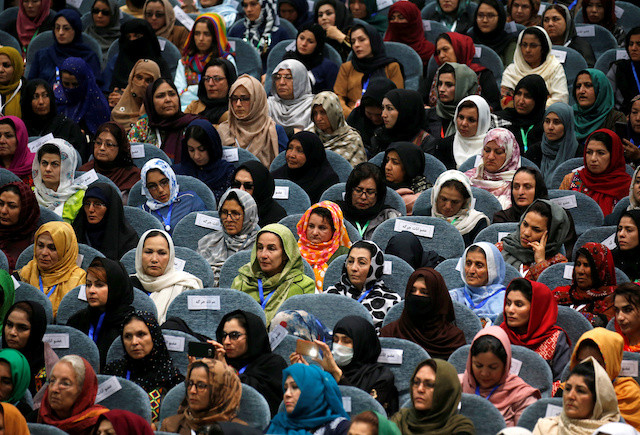Islamic world must look to Bandung spirit of collaboration, minister says
The ummah (Muslim community) ought to muster the spirit of collaboration as championed in the 1955 Asia-Africa Conference, Indonesia’s top diplomat Retno LP Marsudi said in a public lecture on Wednesday.
Change Size

T
he ummah (Muslim community) ought to muster the spirit of collaboration as championed in the 1955 Asia-Africa Conference so it could better contribute to global politics, Indonesia’s top diplomat said in a public lecture speaking to the potential role of the global Islamic community.
Speaking to an audience of Islamic studies students on Wednesday, Foreign Minister Retno LP Marsudi called for some collective soul-searching among member states of the Organization of Islamic Cooperation (OIC), many of which continue to face adversity ranging from poverty to conflict.
She stressed that 21 of the OIC’s 56 members were categorized as least developed countries (LDCs), while more than a fifth of its combined population – 1.81 billion according to a 2018 estimate – lived on less than US$1.9 per person per day, formerly the international poverty line. (As of September 2022, it has been set to $2.15/person/day.)
The situation was worsened by the proliferation of inter- and intra-state conflict, she said, citing an oft-repeated statistic from the Peace Research Institute Oslo (PRIO) that 60 percent of conflict occurred in Muslim countries.
On top of that, she also noted that the Muslim ummah was not immune to geopolitical rivalries, and that some Muslim countries were being used as a battlefield for proxy wars.
“These facts should serve as a wake-up call for the Muslim world. The ummah must first be able to solve our own problems in order to further contribute as part of a solution to global challenges,” Retno said in her remarks for discussion at a university in Depok, West Java.
“Against [the background of] these problems we have no other choice but to revive the Bandung spirit in today’s global context,” she added.
The Bandung spirit is a reference to the Bandung Principles, the outcome of the historic 1955 international conference hosted by Indonesia in Bandung, West Java.
The Bandung Principles are a set of 10 principles held as the basis for navigating divisions emerging from the post-World War II era. During the Cold War, the principles helped nations to avoid taking sides and empowered them to band together as the Non-Aligned Movement (NAM).
Foreign minister to a NAM founding state and the nation with the world’s largest Muslim population, Retno has set Indonesian foreign policy on a path to promote peace and rule of law, offering help to countries ridden by conflict.
As Indonesia’s first woman to become foreign minister, she has shown a keen interest in improving the welfare of marginalized communities, including the women and children of destitute or war-torn Muslim countries.
Indonesia’s foreign policy, she said, was geared toward reviving the Bandung spirit, which she said should serve as a basis for new movements for developing countries.
In moving forward in the spirit of collaboration, there were at least three areas that the ummah must push for.
The first is to reignite the spirit of peace in the Muslim world, which is at the heart of Islam and should thus become a guiding principle for the ummah.
“We should be waging peace instead of war. In a world full of challenges, we must not forget about the plight of Palestinians. We still owe them their independence,” Retno said, referring to the only participating nation from the 1955 conference that had not achieved independence.
The second area, she said, was to accelerate economic recovery in the Muslim world, as many Muslims from around the world were heavily impacted by the food and energy crisis. She also cited a 2021 OIC report that lay out the shortcomings of Muslim countries in achieving the United Nations’ Sustainable Development Goals by 2030.
“We are in dire need of stronger solidarity for economic recovery. In the short term, Indonesia always calls for increased economic cooperation within the OIC for the interests of the ummah,” the minister asserted.
The third area is to empower women in the Muslim world.
“Our credibility on this issue is unmatched. Indonesia is living proof that Islam, women’s empowerment and democracy can go hand in hand,” said Retno.
There was major work to be done for the benefit of women in the Muslim world, she said, whether in education, economic inclusion or political engagement.
“We believe that investing in women means investing in the future of the ummah,” she said, while announcing that Indonesia and Qatar would organize an international conference on Afghan women’s education in December.









